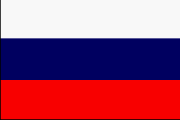



Main Administration of the Microbiological Industry [Glavmikrobioprom]
Glavnaya upravleniya mikrobiologicheskoi promyshlennosti
Soviet leaders since Lenin have stated as one of their long- term goals the development of a powerful scientific and technological base. Yet in 1946 Andrei Zhdanov, a close associate of Stalin, helped launch an ideological campaign designed to demonstrate the superiority of socialism over capitalism in all fields. This campaign, colloquially known as the Zhdanovshchina ("era of Zhdanov"), attacked writers, composers, economists, historians, and scientists whose work allegedly manifested Western influence. Another campaign, related to the Zhdanovshchina, lauded the real or purported achievements of past and present Russian inventors and scientists.
In this intellectual climate, the genetic theories of biologist Trofim D. Lysenko, which were supposedly derived from Marxist principles but lacked scientific bases, were imposed upon Soviet science to the detriment of research and agricultural development. Lysenko argued that the characteristics of a living organism could be altered by environment and that those acquired characteristics could be inherited, a theory that he tried to prove by numerous fraudulent experiments. His ideas fit nicely with Marxist emphasis on environmental influences and won him the support of Stalin. With that backing, Lysenko was able to arrange the removal and arrest of scientists who opposed his views. His influence continued well into the 1950s, when genetics research in the Soviet Union came to a virtual standstill.
A major organizational change occurred in 1961, when the Academy of Sciences was reorganized. Concerned that the academy had focused too much on industrial research projects, Soviet leaders transferred the industry-oriented institutes to state committees. The leadership then directed the academy to focus on fundamental research.
The Main Administration of the Microbiological Industry (Glavnaya upravleniya mikrobiologicheskoi promyshlennosti or Glavmikrobioprom) was established under the USSR Council of Ministers in the early 1960s. In the early 1970s the Soviet Union created a new network of biological warfare facilities parallel to the military system. In 1972 the Council of Ministers established an Interagency Science and Technology Council on Molecular Biology and Genetics, which included the Ministry of Defense, the military-industrial complex, the Soviet Academy of Sciences, the Ministry of Health, and the Ministry of Agriculture. The All-Union Production Association Biopreparat, was created in 1973 [by decree of the Central Committee of the CPSU and the USSR Council of Ministers] to implement the program of the Interagency Council. Although formally subordinated to the civilian Glavmikrobioprom, Biopreparat was funded by the MOD and the head of the organization held the rank of lieutenant general.
Sources and Resources
http://www.fas.org/nuke/guide/russia/agency/glavmikrobioprom.htm
Maintained by Webmaster
Updated Tuesday, October 20, 1998 10:25:22 AM






